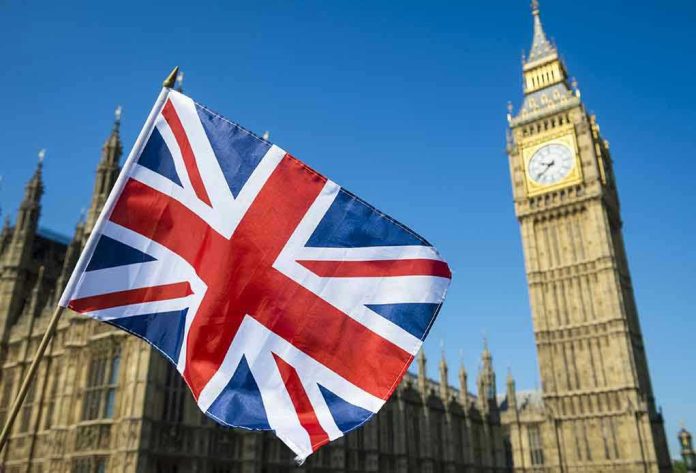
Britain’s welcome mat has been yanked away, replaced with a blunt message: ‘Britain is full. No blacks, no dogs, no Irish.’ But why has a country famed for sanctuary become so openly unyielding, and what does Shabana Mahmood’s hardline stance mean for those who once found refuge on these shores?
Story Snapshot
- Shabana Mahmood declares a new era of strict immigration enforcement in Britain.
- Historic sanctuary traditions are being set aside in favor of swift deportations.
- Mahmood’s rhetoric signals a dramatic shift in the national conversation about race, belonging, and legality.
- The echoes of “No blacks, no dogs, no Irish” reawaken uncomfortable memories and challenge modern values.
Britain’s Changing Welcome: From Sanctuary to Exclusion
Shabana Mahmood’s announcement was not a mere policy tweak; it was a seismic cultural shift. Long viewed as a haven for those fleeing persecution and hardship, Britain now sends a clear signal: the era of open doors is over. Mahmood’s declaration that Britain is “full” invokes the notorious phrase once used to exclude marginalized groups, laying bare the nation’s new priorities. The message resonates with those concerned about housing shortages, strained public services, and the costs of unchecked migration, yet it also unsettles those who recall darker times when exclusion was the rule, not the exception.
The phrase “No blacks, no dogs, no Irish” is more than historical provocation; it’s a reminder of Britain’s troubled relationship with diversity. Mahmood’s invocation of such language is not accidental—it’s a calculated gesture meant to jolt the public into seeing the scale of the immigration debate anew. For many, this feels like a betrayal of the values that once defined British identity, where compassion and sanctuary were points of pride. For others, it’s a long-awaited assertion of control and common sense.
Mahmood’s rhetoric lands at a time when the country faces mounting pressures. Housing is scarce, jobs are competitive, and public resources are stretched thin. The argument is simple: Britain can no longer afford to be a landing pad for the world’s needy. The idea of kicking out illegal immigrants “as soon as possible” finds support among those who believe national interests should come first. Yet, beneath the surface, there is anxiety about what this new posture means for Britain’s reputation and future.
Political Calculus: No More “Mr Nice Guy” on Illegal Immigration
Mahmood’s stance is not without precedent. British political leaders across the spectrum have periodically toughened their language on immigration, especially during periods of economic uncertainty. What sets Mahmood apart is her willingness to abandon the polite euphemisms and face the issue head-on, even if it means resurrecting phrases that evoke exclusion and prejudice. This approach is calculated to resonate with an electorate that feels ignored and overwhelmed by the scale of change.
The promise of “no more Mr Nice Guy” is not just a slogan—it’s a foreshadowing of policy moves that could reshape communities. Deportations are likely to accelerate, enforcement will tighten, and the definition of belonging will narrow. Mahmood’s determination signals that Britain is entering a new phase where sentimentality takes a back seat to enforcement. The question is whether these measures will deliver the security and cohesion their proponents promise, or whether they will ignite new tensions and divisions.
Echoes of the Past: Exclusion, Identity, and the Conservative Response
The specter of exclusionary policies raises uncomfortable questions about national identity and the values Britain wishes to uphold. For conservative thinkers, Mahmood’s approach aligns with the principle that a nation’s first duty is to its own citizens. They argue that generosity has limits, and that rules governing entry and residence must be enforced with clarity and consistency. At the same time, there is unease about the rhetoric’s potential to stoke fear, resentment, and division.
Mahmood’s move is a stress test of British common sense: can a country maintain order and fairness without losing its soul? Advocates of tighter controls welcome the shift as overdue, while critics warn of a slide into nativism. The debate is not simply about numbers, but about the kind of society Britain wants to be—a place of principle, or a fortress against change. The open loop remains: will Mahmood’s hardline approach deliver the results her supporters expect, or will Britain discover that exclusion comes at a cost no one anticipated?
Sources:
Mahmood battles backlash from Labour MPs over asylum reforms







